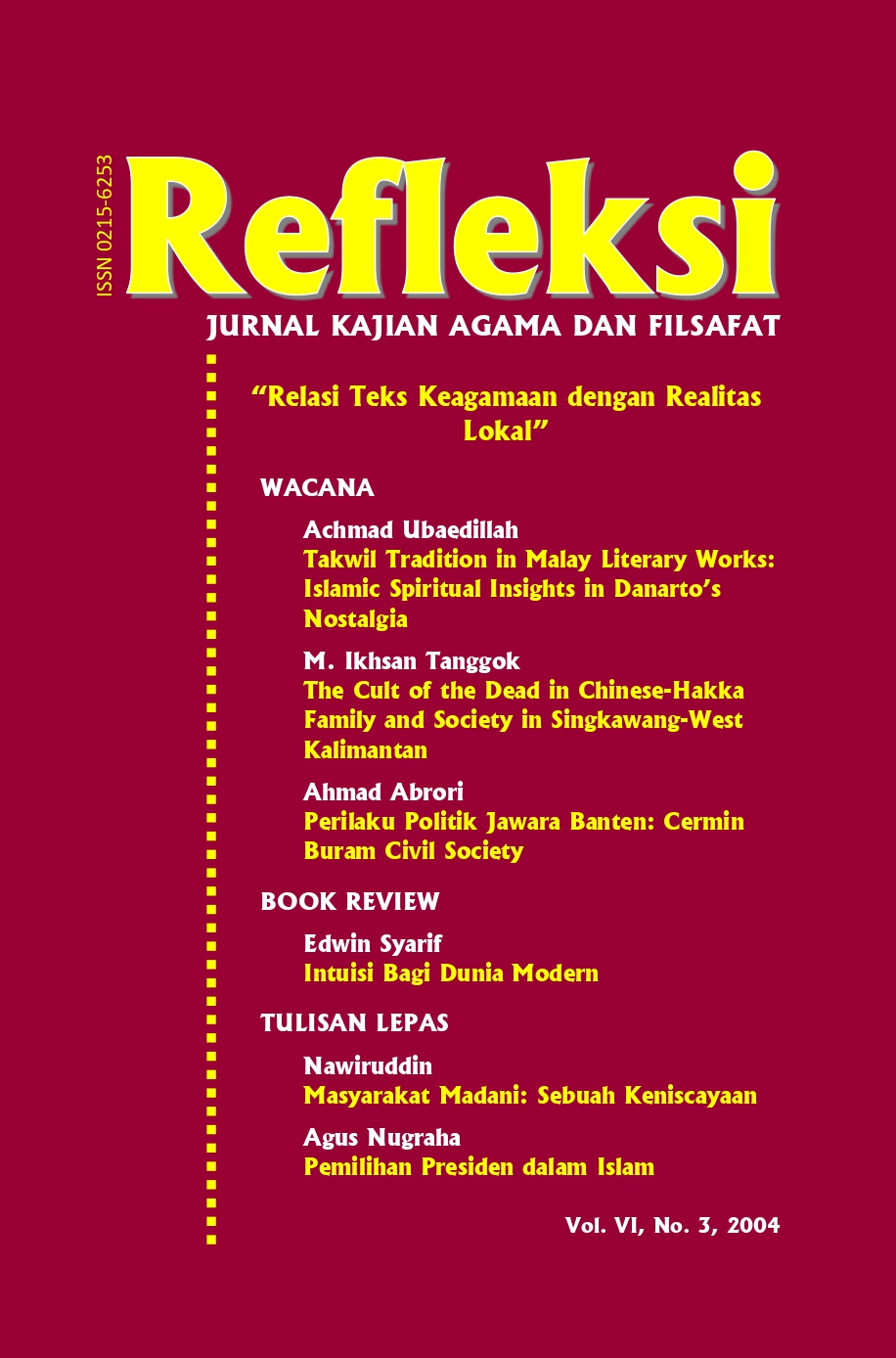Intuisi Bagi Dunia Modern
DOI:
https://doi.org/10.15408/ref.v6i3.37874Keywords:
Intuition, Instinct, Natural Instinct, Modern World.Abstract
This article reviews the book by David G. Myers titled “Intuition: Its Powers and Perils.” The book explains the existence of two influential schools of thought, rationalism emphasizing reason and empiricism focusing on sensory experience. Both have given rise to different disciplines of science. Rationalism, with its deductive method, has produced exact sciences, while empiricism, with its inductive method, has given birth to natural sciences. These two schools of thought—Rationalism and Empiricism—have shaped Western thinking for three centuries and have led to remarkable advances in science and technology.
References
Al-Attas, Syed Muhammad Naquib. Islam dan Filsafat Sains, terj. Saiful Muzani, Bandung: Mizan,1995.
Bakar, Osman. Hierarki Ilmu Membangun Rangka-Pikir Islamisasi Ilmu, terj. Purwanto, Bandung: Mizan, 1997.
Iqbal, Muhammad. Rekonstruksi Pemikiran Agama dalam Islam, terj. Didik Komaidi, Yogyakarta: Lazuardi, 2002.
Myers, David G. Intuisi Fungsi Insting dan Naluri untuk Meraih Kesuksesan, terj. Rusiani, Yogyakarta: Qalam, 2004.
Nasr, Seyyed Hossein. “Mulla Sadra: his teachings”, dalam Seyyed Hossein Nasr dan Oliver Leaman (ed.), History of Islamic Philosophy, London: Routledge, 1996.
Nasution, Harun. Falsafat dan Mistisisme dalam Islam, Jakarta: Bulan Bintang, 1999.
Muthahhari, Murtadha. Mengenal Epistemologi, terj. Muhammad Jawad Bafaqih, Jakarta: Lentera Basritama, 2001.








